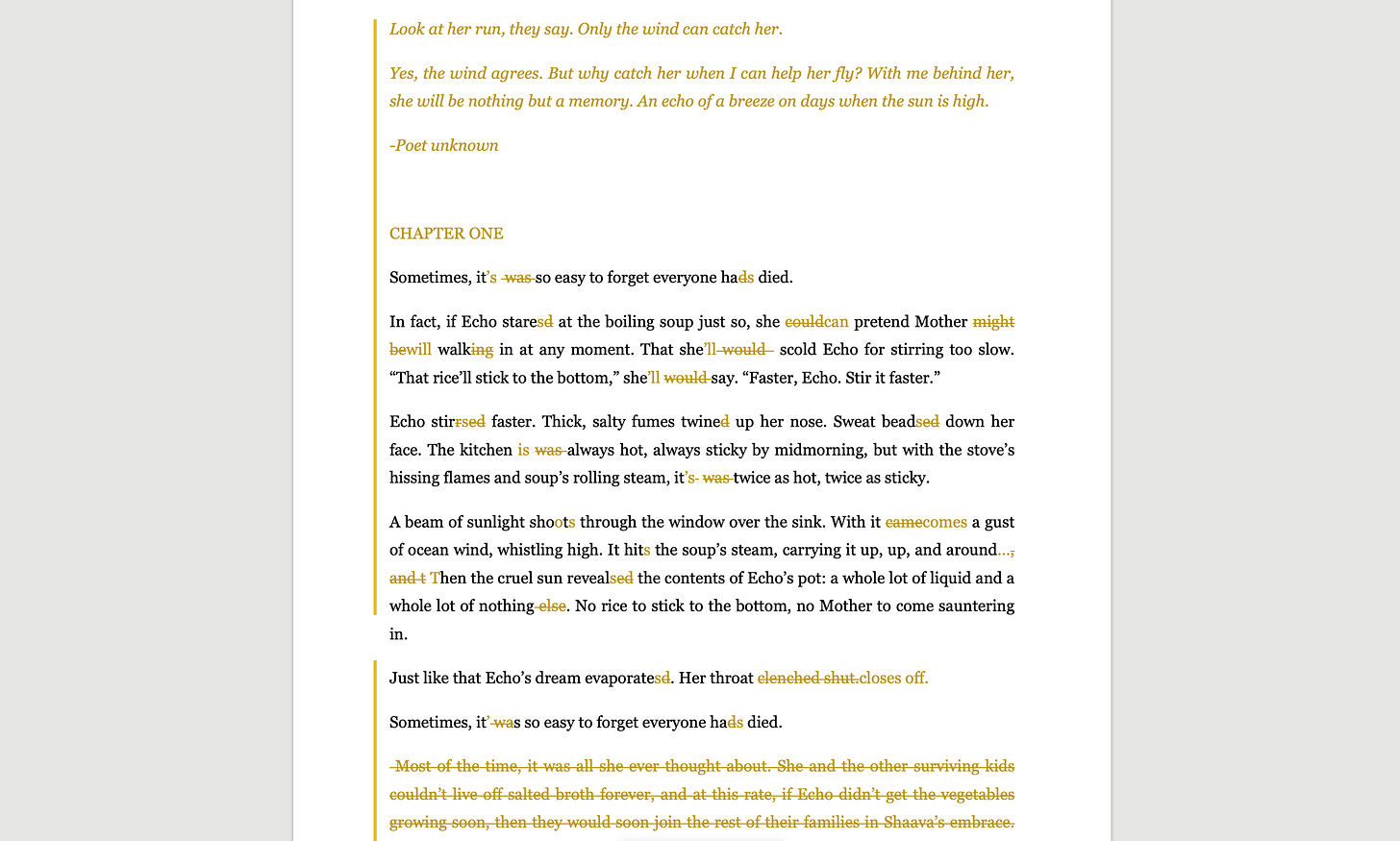Tackling the Big Rewrites
POV changes, tense changes—should you edit what you have or start over?
Hilariously, I wrote + scheduled this post two weeks ago…and then three days later, I started making more enormous edits to Screechers. So it would be remiss not to mention my own Big Rewrites with that book that are currently going on.
As I explained a few days ago in this discussion post, I’m planning to share my actual revisions step by step as I go along. So make sure you’re a paid subscriber if you want to see that.
Now, onto the question and my answer! Please remember I wrote all of this a few days before starting another big Screechers rewrite!
Keep reading with a 7-day free trial
Subscribe to Misfits & Daydreamers to keep reading this post and get 7 days of free access to the full post archives.


